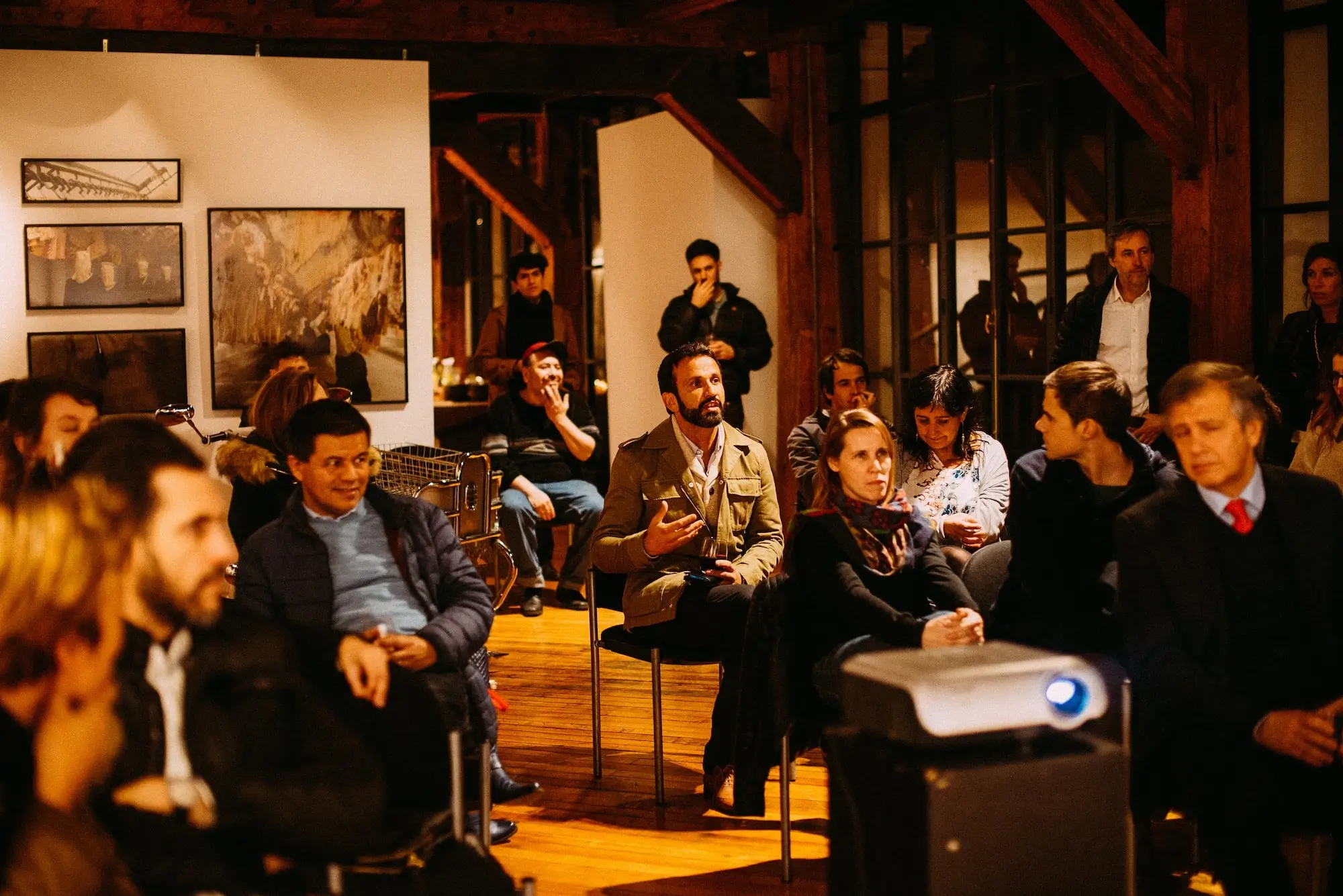Becoming a Software Engineer Without a Degree: A Step-by-Step Guide

No degree? No problem.
Over 21 million software developers grace the global stage, and yet, the industry's ravenous appetite for talent remains unsatisfied. As gateways to technology careers widen, credentials blur, inviting the self-taught virtuoso to the table.
Ambition thrives beyond the confines of academia. Your creativity and problem-solving prowess are the true catalysts for innovation.
Find out how to become a software engineer without a diploma or degree - it's easier than you might think!
Table of Content
- Grasping Fundamentals of Software Development
- Building Practical Skills Through Projects
- Gaining Real-World Experience
- Showcasing Your Skills to Employers
- Journey Of A Self-Taught Software Engineer
- Conclusion
Grasping Fundamentals of Software Development
Before diving headfirst into the vast ocean of coding, one must first dip their toes in the foundational waters. Variables, control structures, data types, and algorithms are the ABCs of this digital lexicon, critical for fluency in the poetic language of technology.

Learn Core Programming Languages
Core programming languages such as Python, JavaScript, and Java form the fundamentals in your code creations. They are the linchpins of software development, the silent rhythm to modern technology's melody.
Within these languages lie the DNA of digital success. They enable engineers to construct the architecture of tomorrow's innovations. Mastery of Python's simplicity, JavaScript's ubiquity, or Java's robustness primes you for crafting algorithms that are thriving with efficiency and effectiveness.
Even Shakespeare had to learn his ABCs before crafting timeless masterpieces.
Knowing these languages is not about rote memorization, but embracing their structure as your canvas. As you paint with loops, variables, and data structures, your fluent understanding evolves. With every line of code, you turn a once intimidating string of characters into a narrative of solutions and creativity.
Understand Software Development Life Cycle
Now it comes to the pulsating heart of how software is birthed: the Software Development Life Cycle (SDLC).
- Requirement analysis: Gather the raw materials; understand what the software must achieve.
- System design: Blueprint your digital marvel, outlining the architecture and every nook and cranny.
- Implementation: Bring forth your code warriors and transform those blueprints into breathing software.
- Testing: Don your detective hat! Inspect every corner for bugs and ensure your software stands tall.
- Deployment: Release the Kraken! Or rather, gently launch your software into the user's world.
- Maintenance: The journey doesn't end after the launch. Keep your software shipshape with regular tune-ups.
There's a seductive rhythm in understanding SDLC, akin to learning the tango. It's methodical, yet filled with passion for creating something that moves flawlessly.

Essential Development Tools and Environments
In your quest for code mastery, you'll need to cozy up to Integrated Development Environments (IDEs) like Visual Studio or Eclipse.
Git becomes your digital time machine, the savior when code inevitably goes awry.
Containerization tools like Docker package your software into neat compartments, cutting the Gordian knot of "works on my machine" syndrome.
And let's not forget the bedrock of web development—the trinity of HTML, CSS, and JavaScript—which are as foundational as the laws of thermodynamics in physics. Your creations start here, in the alchemy of logic and design.
Building Practical Skills Through Projects
Projects are your opportunity where you demonstrate your skills - solving real problems, not just talking about algorithms like they're abstract art. The projects you choose need to showcase your flair for innovation, your resilience against bugs, and your uncanny ability to deliver delectable digital experiences.

Personal Coding Projects
Now, you might wonder, “How do I pick the right project?” Here’s the skinny: hone in on something that fires up your engines, something that makes you want to code until you completely forget the time. It could be a mobile app that reminds people to hydrate, a website that generates endless dad jokes, or an algorithm that predicts the next big meme. Whatever it is, make it yours, inject your character and watch it blossom into a technical masterpiece.
Let's get one thing straight: these coding escapades are not just for show. They are a battlefield where kinks in logic are straightened, coding muscles are flexed, and resilience is built.
By journey’s end, these projects become more than lines on a CV; they are your success stories, your triumphs, your digital offspring. They speak volumes more than any degree ever could, serving as tangible proof of your prowess.
Open Source Contribution
Dive into the digital commons - contribute to open source!
Engage in the vibrant ecosystem of collaborative coding by contributing to open source projects. This is not merely altruism at play; it's a strategic career move. By delving into existing projects, you offer your talents to the world. Meanwhile, you're expanding your technical repertoire, immersing yourself in real-world programming challenges, and building a reputation in a global community. Plus, there's no denying the thrill of seeing your contributions live in software used by millions.

A treasure trove awaits in open source - vast projects needing a helping hand. By contributing, you rub shoulders with experienced developers, soaking up wisdom and gaining insider views on best practices.
Once you start committing code to open source, you become part of something greater – an ecosystem that fosters innovation and shared progress. Your code contributions today could be part of tomorrow's major technologies. With every pull request, you join the ranks of contributors to the evolving digital landscape, potentially making your mark on the 2024 tech trends.
Gaining Real-World Experience
Now it's time to step out of the comfort zone. After you contribute to open-source projects, or intern at startups and freelance on projects that make your brain sizzle. Get yourself ready to really get things going! This is your final step into the world of becoming a software engineer - and you didn't even need a university degree or diploma up to this point.

Freelancing and Temporary Work
Now, unleash your coding prowess into the freelancing arena. Here you aren't just another cog in the machine; you're a one-person army, learning to negotiate, meet diverse client expectations, and manage projects with the poise of a tightrope walker.
Temp gigs are hidden gems for experience. Quick, challenging, varied.
Think of these freelance and temp forays as a playground for the practical application of your skills. They’re the perfect way to test theories, make mistakes in a forgiving environment, and learn at a pace that could make even the boldest caffeine-addled startupper pause.
These short-term commitments can often snowball into long-term relationships or open doors to unexpected opportunities. Freelancing is your golden ticket to an ever-evolving portfolio.
Internships and Volunteer Work
Dive into the trenches of tech by snagging an internship or taking up volunteer work; it's like getting a backstage pass to the show of your career!
In 2021 alone, we witnessed a surge of hopefuls who, gloves on, embraced internships and volunteer projects as their rite of passage, gaining invaluable on-the-job experience while building professional networks that outshine any LinkedIn connection request.
You, too, can harness the alchemy of unpaid gigs to transmute base experiences into career gold! Financial compensation isn't the endgame here—instead, it's about accumulating the kind of knowledge and connections that money can't buy.
With every internship hour logged and volunteer task tackled, you'll piece together a storyline that screams, "I've got the chops!" Not only does this illustrate your keen spirit and capability, it casts you as the leading candidate in the epic quest for employment.
Success in this realm is often about putting gumption on display and showing that your enthusiasm for software engineering isn't just skin-deep—it permeates every byte of your being. So volunteer, and let each opportunity sculpt you into the tech maestro you're destined to become.

Networking with Industry Professionals
Imagine networking as the secret sauce that gives your career that extra zing. Sprinkle it on liberally!
- Craft a Stellar Elevator Pitch: You’ve got 30 seconds – be memorable.
- Attend Tech Meetups and Conferences: Engage with the wizards of the coding world.
- Join Online Communities: Be active on platforms like GitHub and Stack Overflow.
- Utilize LinkedIn: Connect, post, and interact with industry veterans.
- Contact Alumni: Reach out to folks who’ve walked the path you’re on.
- Volunteer Your Skills: Work on projects where you can rub elbows with the pros.
- Follow Industry Leaders on Social Media: Comment and engage in dialogues.
Merely mingling isn’t enough. You gotta engage, ask questions, and follow up! Don't underestimate the power of a well-timed coffee invite. It's where magic happens!
Showcasing Your Skills to Employers
In this digital colosseum where talent is the main event, your skills are your gladiators—make them fight for you. Stack your armory with projects that resonate, embody your expertise, and let your GitHub repo be your roaring crowd, because in the end, code speaks louder than degrees.
Transform your digital persona into a magnet for opportunity; highlight your technological prowess through online portfolios, personal websites, and curated content across social media platforms. Let your passion for code shine so bright that employers need sunglasses just to browse your accomplishments.

Creating a Compelling Portfolio
Your portfolio is your handshake, your smile, a silent trumpet announcing your arrival on the tech scene. It should narrate a story, showcasing a trajectory of growth and a palette of skills.
Imagine your portfolio as an art gallery, each project a masterpiece hanging on the walls, demonstrating your versatility and problem-solving prowess. These are the trophies of your coding conquests, silhouetted against the backdrop of your unique creativity and technical acuity. Curate this collection meticulously. Each code repository, every design mock-up, should be a carefully selected piece representing the breadth and depth of your abilities.
Balance is key: Too many projects can confuse, too few can underwhelm. Aim for a Goldilocks zone, sweet-spotting quantity with quality. Showcase projects that span different disciplines—front-end aesthetics meet back-end brawn. Highlight collaborative efforts, solo ventures, and continuous learning endeavors.
Your portfolio is not just a reflection of your skill set, it's the narrative of your journey into software engineering. Like a finely crafted novel, it should arouse curiosity, invite exploration, and leave a lasting impression of your capabilities.
Ultimately, your portfolio is your proof of concept—not just for employers, but for yourself. It's the tangible evidence of your commitment, your passion, and your readiness to tackle the challenges of the tech world.
Crafting an Effective Resume
Your resume is your golden ticket, your succinct billboard, your bite-sized manifesto that screams, "I am the one you've been searching for!"
- Show Off Skills and Projects: Highlight technical proficiencies and innovative projects that display your development expertise.
- Tailor Your Narrative: Customize the resume for the role you're eyeballing, showcasing relevant experience and accomplishments.
- Education Alternative: Emphasize self-taught knowledge, bootcamps, certifications, and relevant online courses instead of traditional degrees.
- Experience Speaks Volumes: Detail your practical experience, even if it's personal or freelance projects, hackathons, or contributions to open-source.
- Flaunt Achievements: Spotlight any recognitions, publications, or community involvement that underscore your passion and dedication to software engineering.
Think of your resume not as a mere formality, but as a compelling prologue to the epic saga that is your career.
Keep it lean, mean, and clean—trim the fat of irrelevance and let your most impactful achievements do the heavy lifting in crisp, clear prose.

Acing Technical Interviews
Strutting into the technical interview, it's showtime for your code-slinging prowess.
- Master the Fundamentals: Ensure a solid grasp of computer science basics like data structures and algorithms.
- Cultivate Problem-Solving Skills: Practice thinking through problems out loud with mock interviews.
- Code, Code, Repeat: Familiarize yourself with coding practice platforms to sharpen your skills.
- Get Comfortable with Whiteboarding: Hone your ability to sketch out solutions on a whiteboard—clearly and confidently.
- Understand the Company and Role: Research the company's tech stack and the role's specific technologies to tailor your approach.
- Review Past Projects: Be ready to discuss your previous work, emphasizing your role and the technologies used.
It's more than just cracking codes; it's about selling your tech genius.
Knock their virtual socks off with a synthesis of technical ability and immaculate communication skills.
Journey Of A Self-Taught Software Engineer
At MVST, we have talented and passionate software developers on board. Some of them are completely self-taught - this is the living proof that you don't need a degree or diploma to be a successful digital engineer! Dive into the story of one of them:
Everything is more or less available online for free. So, at first, you can start by looking up articles and YouTube videos on how to develop apps from scratch, without relying on WordPress page builders or similar tools.
After spending some time doing smaller projects on your own, focusing on HTML, CSS, and a bit of JavaScript, you might come across a Reddit post about a free online bootcamp called 100devs. This bootcamp can be a game-changer for you, providing a structured learning environment and a supportive community. At 100devs, you will have the opportunity to attend two online Twitch streams or classes every week, followed by homework assignments. The bootcamp's focus is not only on programming but also on helping you get the job. You will receive tips and tricks from your teacher, Leon, on how to stand out during interviews, including how to tackle coding challenges.
Despite the emphasis on job readiness, you will still have plenty of coding projects to work on. In fact, you will be assigned a significant project that requires at least 100 hours of effort. This project aims to make you stand out compared to the competition. Within the 100devs Discord community, you might find a group of people from Europe who are also participating in the bootcamp. You can form your own little sub-community, holding each other accountable and working on projects together.
It's worth mentioning that out of an active group of six, five or six individuals have already secured jobs in the industry, all without any formal education. This proves that finding structure and a community of like-minded people can be crucial when trying to break into a new industry without spending time getting a degree.
You will be told, and especially your teacher at the bootcamp will make it clear, that there is a window of opportunity to get a developer job without any education. The demand is high, and after all, software development is a craftsmanship. But in the end, remember this: As a self-taught software engineer, you have the potential to have a successful career.

